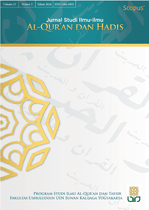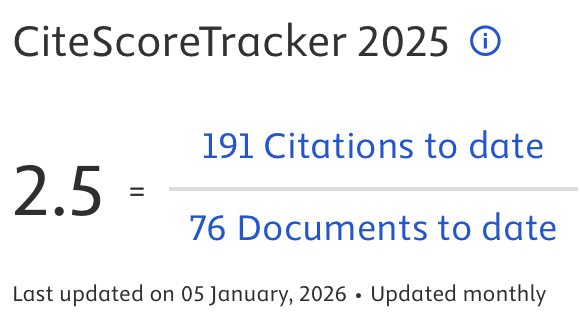The Rejection of Prophetic Traditions: Analyzing the Inkar Sunnah Movement in West Sumatra, Indonesia
DOI:
https://doi.org/10.14421/qh.v25i2.5516Keywords:
Inkar Sunnah, Hadith, West Sumatra, Islamic Law, Sunnah RejectionAbstract
This article explores the ideological stance of the Inkar Sunnah movement, which rejects the prophetic traditions (Sunnah) as a source of Islamic law, focusing on its development in West Sumatra, Indonesia. Historically, this movement can be traced back to political and sectarian conflicts in early Islamic history, such as those involving the Khawarij, Shia, and Mu'tazilah sects. Over time, skepticism towards hadith, fueled by fabricated traditions and modern Orientalist critiques, gained traction. Prominent figures like Dalimi Lubis and Nazwar Syamsu have continued to propagate Inkar Sunnah beliefs in modern Indonesia, advocating that the Qur’an alone suffices for Islamic jurisprudence. This research adopts a qualitative library approach, analyzing primary texts by these figures and secondary sources on hadith scholarship. The study critically examines their arguments and the socio-political context that allowed their ideas to proliferate, as well as strategies to counter this ideological challenge within Indonesian Islamic discourse. The findings reveal a persistent tension between traditional Sunni orthodoxy and reformist interpretations that seek to minimize or outright reject the role of the Sunnah, posing significant implications for Islamic legal and theological frameworks.
 Abstract viewed: 1071 times
|
Abstract viewed: 1071 times
|
 PDF downloaded = 751 times
PDF downloaded = 751 times
References
Afwadzi, Benny. “Epistimologi Inkar Al-Sunnah: Telaah Pemikiran Kassim Ahmad.” Al-Furqan: Jurnal Ilmu Al-Qur’an dan Tafsir 1, no. 2 (2018): 121–144.
Ahmad, Kassim. Hadis Diteladani Sebuah Re-Evaluasi Mendasar Atas Hadis. Malaysia: Trotoar, 2006.
Al-Baghdadi, Al-Khatib. Al-Kifayah Fi ’Ilm Ar-Riwayah. Beirut: Al-Maktabah Al-’Ilmiyah, 1358.
Al-Khatib, Muhammad ’Ajaj. Ushul Al-Hadits, Ulumuhunwa Musthlahahu. Beirut: Dar Al-Kutub, 1989.
An-Naisaburi, Al-Hakim. Al-Mustadrak Ala Ash-Shahihain. banjarmasin: Dar Al-Ma’rifat, 2006.
Armayanti, Dona. “Inkar Sunnah: Asal Usul Dan Perkembangan Pemikiran Inkar Sunnah Di Dunia Islam.” Tashdiq: Jurnal Kajian Agama dan Dakwah 2, no. 1 (2023): 41–50.
As-Syafi’i, Muhammad bin Idris. Al-Umm. Beirut: Dar Al-Ma’rifah, 1975.
———. Jima’ Al-Ilm. Madinah: Dar Al-Atsar, 2002.
Azami, Mushtafa Muhammad. Dirasat Fi Al-Hadis Al-Nabawi Wa Tarikh Tadwinihi. Beirut: Al-Maktab Al-Islami, 1980.
Brown, Daniel W. Rethinking Tradition in Modern Islamic Though. Cambridge University Press. London, 1996.
Damanhuri. “RECONSTRUCTION OF MATAN HADITH UNDERSTANDING ABOUT WOMEN POSITION IN HOUSEHOLD.” Jurnal Ilmiah Peuradeun 4, no. 2 (May 28, 2016): 239–56.
Dewi, Subkhani Kusuma, and Muhammad Akmaluddin. “Broadcasting Umrah through the Hadith of Hajj Badal in the COVID-19 Pandemic Era.” Jurnal Studi Ilmu-Ilmu Al-Qur’an Dan Hadis 24, no. 2 (July 31, 2023): 231–52.
Fatihunnada, Fatihunnada, and Afni Miftah Khairunnisak. “Kritik Argumentasi Ingkar Sunnah Menurut Al-Buti.” Refleksi 19, no. 2 (2020): 167–182.
Hakim, Luqmanul. Ingkar Sunnah Periode Klasik. jakarta: Hayfa Press, 2004.
———. Inkar Sunnah Periode Klasik. jakarta: Hayfa Press, 2004.
Handika, Caca. “Ingkar Al-Sunnah Di Indonesia (Studi Analisis Tentang Pemikiran Ingkar Sunnah Ir. M. Ircham Sutarto).” Al-Din: Jurnal Dakwah dan Sosial Keagamaan 4, no. 1 (2019): 35–46.
Hidayat, Rian, and Yulmitra Handayani. “The Phenomenon of the Death of Sacrificial Animals Before the Day of Slaughter in the Islamic Law Perspective: A Portrait of the Case in Luhak Nan Tigo, West Sumatra.” Journal of Islamic Law 1, no. 1 (February 25, 2020): 1–24. https://doi.org/10.24260/jil.v1i1.3.
Khon, Abdul Madjid. “Ingkar Al-Sunnah Masa Klasik (Telaah Tentang Pokok-Pokok Pemikirannya).” UIN Syarif Hidayatullah Jakarta (1998).
———. “Paham Ingkar Sunnah Di Indonesia.” Jurnal Theologia 23, no. 1 (2017): 57–74.
———. “Paham Ingkar Sunnah Di Indonesia (Studi Tentang Pemikirannya).” Teologia 23, no. 1 (2021).
———. Pemikiran Modern Dalam Sunnah: Pendekatan Ilmu Hadis. Jakarta: Kencana, 2001.
———. Ulumul Hadis. jakarta: Amzah, 2020.
Langaji, Abbas. Ingkar Hadits. yogyakarta: Madani, 2021.
Lubis, Dalimi. “Alam Barzakh (Alam Kubur).” Ghalia. Jakarta, 1985.
———. “Mempertanyakan Eksistensi Hadits/Sunnah Nabi Dalam Ajaran Islam,” n.d.
Makhfud, Makhfud. “Meninjau Ulang Signifikansi Kedudukan Hadits Dan Ingkar Al-Sunnah.” Tribakti: Jurnal Pemikiran Keislaman 28, no. 1 (2017): 47–68.
Mudrikah, Syarifah, and Imamul Authon Nur. “Pasang Surut Inkar Sunnah: Studi Analisis Pada Masa Klasik Dan Modern.” Al-Bukhari: Jurnal Ilmu Hadis 3, no. 1 (2020).
Mursidin, Ida Ilmiah. “Inkar Sunnah (Argumen Dan Tokohnya).” Jurnal Ilmu Hadits 1, no. 1 (2022): 1–21.
Nadia, Zunly, and Niswatin Faoziah. “Gender Equality within Family in Islamic Perspective: Insights from The Hadiths of Ummul Mukminin.” Jurnal Studi Ilmu-Ilmu Al-Qur’an Dan Hadis 25, no. 1 (June 14, 2024): 161–86.
Noormani, M. Agus. “Perkembangan Aliran/Paham Keagamaan Di Sumatera Barat.” Jurnal Multikultural dan Multireligius 13, no. 1 (2014).
Nurfajriyani, Nurfajriyani. “Ingkar Hadis Di Indonesia Dan Malaysia (Studi Konparatif Pemikiran Hadis Nazwar Syamsu Dan Kassim Ahmad).” An-Nida’ 43, no. 1 (2019): 101.
Rahman, Zufran. Sunnah Nabi SAW Sebagai Sumber Hukum Islam (Jawaban Terhadap Inkar Sunnah). Jakarta: CV Pedoman Ilmu Jaya, 1995.
Rasyid, Daud. Sunnah Di Bawah Ancaman: Dari Snouck Hugronje Hingga Harun Nasution. bandung: Syaamil, 2006.
Rayyah, Mahmud Abu. Adwa ’Ala Al-Sunnah Al-Muhammadiyah. Makkah: Dar Al-Ma’arif, 1957.
Safri, Edi. Melacak Pandangan Dalimi Lubis Tentang Penolakannya Terhadap Sunnah (Kajian Kasus Penganut Paham Ingkar Al-Sunnah Di Padang Panjang). Padang: Baitul Hikmah Press, 2001.
Saif, Muhammad Ibrahim Ahmad. “Denying Tyranny According to Quran and Sunnah” (2007). https://repository.najah.edu/handle/20.500.11888/8193.
Shidqi, Tawfiq. “Al-Islam Huwa Al-Qur’an Wahdah.” Al-Manar, n.d.
Solahuddin, Agus, and Agus Suryadi. Ulumul Hadis. bandung: Pustaka Setia, 2008.
Syamsu, Nazwar. Tauhid Dan Logika: Al-Qur’an Tentang Manusia. Jakarta: PT Ghalia Indonesia, 1983.
Yaqub, Ali Musthafa. Kritik Hadis. yogyakarta: Pustaka Firdaus, 1995.
Zainuddin. “Ailal Rashid’s Critical Contribution to Sahih Al-Bukhari in the Book of Sahih Al-Bukhari Nihayah Usturah.” Jurnal Studi Ilmu-Ilmu Al-Qur’an dan Hadis 23, no. 1 (2022): 1–18.
Zarkasih. “Inkar Sunnah: Asal Usul Dan Perkembangan Pemikiran Inkar Sunnah Di Dunia Islam” (n.d.): 1–19.
Downloads
Published
How to Cite
Issue
Section
License
Copyright (c) 2024 Luqmanul Hakim, Suci Amalia Yasti, Yassinta Ananda

This work is licensed under a Creative Commons Attribution-NonCommercial-NoDerivatives 4.0 International License.
Publishing your paper with Jurnal Studi Ilmu-ilmu al-Qur'an dan Hadis means that the author or authors retain the copyright in the paper. Jurnal Studi Ilmu-ilmu al-Qur'an dan Hadis uses license CC-BY-NC-ND or an equivalent license as the optimal license for the publication, distribution, use, and reuse of scholarly works. This license permits anyone to copy and redistribute the material in any medium or format and must give appropriate credit, provide a link to the license, and indicate if changes were made. If you remix, translate, transform or build upon the material you may use it for private use only and not for distribution. Jurnal Studi Ilmu-ilmu al-Qur'an dan Hadis granted an exclusive non-commercial reuse license by the author(s), but the author(s) are able to put the paper onto a website, distribute it to colleagues, give it to students, use it in your thesis, etc, so long as the use is not directed at a commercial advantage or toward private monetary gain. The author(s) can reuse the figures and tables and other information contained in their paper published by Jurnal Studi Ilmu-ilmu al-Qur'an dan Hadis in future papers or work without having to ask anyone for permission, provided that the figures, tables, or other information that is included in the new paper or work properly references the published paper as the source of the figures, tables or other information, and the new paper or work is not direct at a private monetary gain or commercial advantage.
Jurnal Studi Ilmu-ilmu al-Qur'an dan Hadis journal Open Acces articles are distrubuted under the Creative Commons Attribution-NonCommercial-NoDerivatives 4.0 International (CC BY-NC-ND 4.0). Article can be read, copy and redistribute the material ini any medium or format under the following conditions:
Attribution — You must give appropriate credit, provide a link to the license, and indicate if changes were made. You may do so in any reasonable manner, but not in any way that suggests the licensor endorses you or your use.
NonCommercial — You may not use the material for commercial purposes.
NoDerivatives — If you remix, transform, or build upon the material, you may not distribute the modified material.










